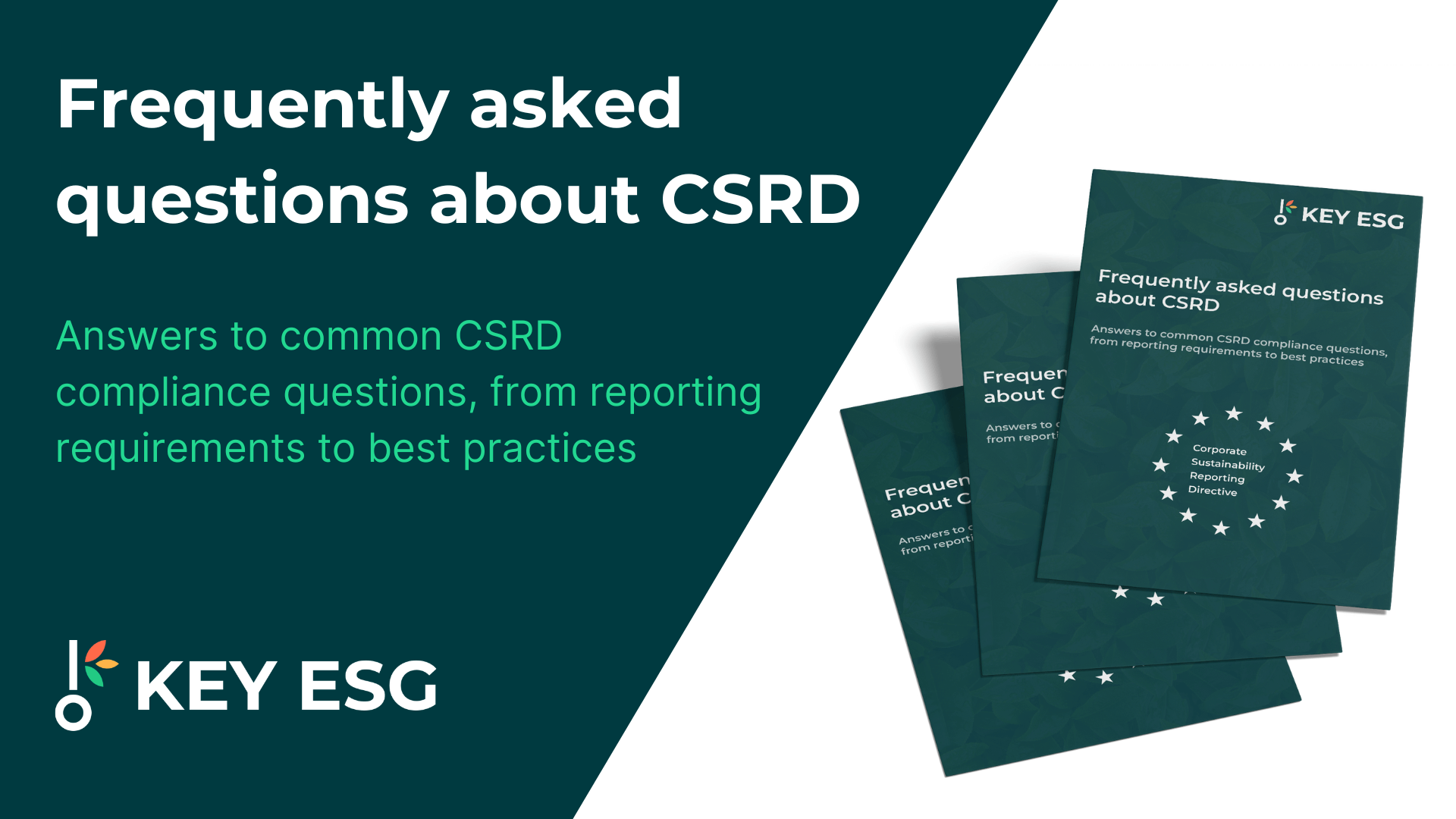Whitepaper: What is CSRD? Frequently asked questions


The Corporate Sustainability Reporting Directive (CSRD) is a European Union (EU) regulation that aims to standardise sustainability reporting across companies. This directive applies to large public interest entities (PIEs), companies listed on an EU-regulated market, and certain non-EU companies with significant operations or net turnover in the EU market.
This directive expands upon the non-financial reporting directive (NFRD), marking the evolution of EU sustainability reporting. The European Commission plays a central role in developing and implementing the CSRD and its related standards, the European Sustainability Reporting Standards (ESRS). Eligible companies must adhere to CSRD reporting requirements and publish their sustainability reports and financial statements.
The double materiality assessment (DMA), the practice of considering both financial and impact materiality, is a concept unique to CSRD. It ensures that eligible companies undergo this process prior to completing their sustainability reports.
Companies must then disclose information on their material environmental, social and governance KPIs to transparently communicate a holistic view of their sustainability impacts, risks, and opportunities.
To streamline your CSRD reporting journey, our experts share relevant market and regulatory updates. Our FAQ document outlines answers to frequently asked questions regarding implementing the ESRS standards and EFRAG guidance.
KEY ESG delivers software designed to enable a smooth transition to CSRD compliance, aimed at organisations at all stages of ESG maturity.
KEY ESG simplifies CSRD compliance with a comprehensive CSRD Platform that manages reporting obligations, addresses sustainability risks, and ensures full alignment with CSRD disclosure requirements.
With KEY ESG, firms can achieve CSRD compliance faster, more accurately, and more confidently.
The Corporate Sustainability Reporting Directive (CSRD) is a European Union (EU) regulation that aims to standardise sustainability reporting across companies. This directive applies to large public interest entities (PIEs), companies listed on an EU-regulated market, and certain non-EU companies with significant operations or net turnover in the EU market.
This directive expands upon the non-financial reporting directive (NFRD), marking the evolution of EU sustainability reporting. The European Commission plays a central role in developing and implementing the CSRD and its related standards, the European Sustainability Reporting Standards (ESRS). Eligible companies must adhere to CSRD reporting requirements and publish their sustainability reports and financial statements.
The double materiality assessment (DMA), the practice of considering both financial and impact materiality, is a concept unique to CSRD. It ensures that eligible companies undergo this process prior to completing their sustainability reports.
Companies must then disclose information on their material environmental, social and governance KPIs to transparently communicate a holistic view of their sustainability impacts, risks, and opportunities.
To streamline your CSRD reporting journey, our experts share relevant market and regulatory updates. Our FAQ document outlines answers to frequently asked questions regarding implementing the ESRS standards and EFRAG guidance.
KEY ESG delivers software designed to enable a smooth transition to CSRD compliance, aimed at organisations at all stages of ESG maturity.
KEY ESG simplifies CSRD compliance with a comprehensive CSRD Platform that manages reporting obligations, addresses sustainability risks, and ensures full alignment with CSRD disclosure requirements.
With KEY ESG, firms can achieve CSRD compliance faster, more accurately, and more confidently.